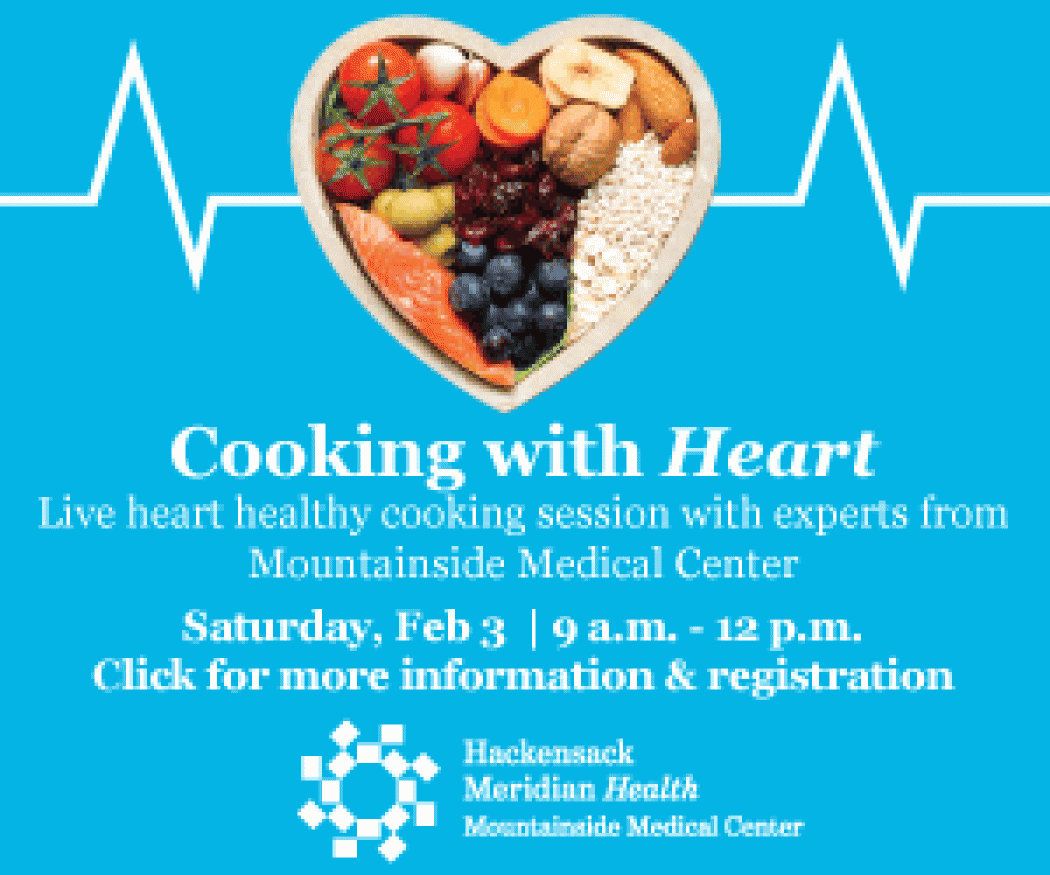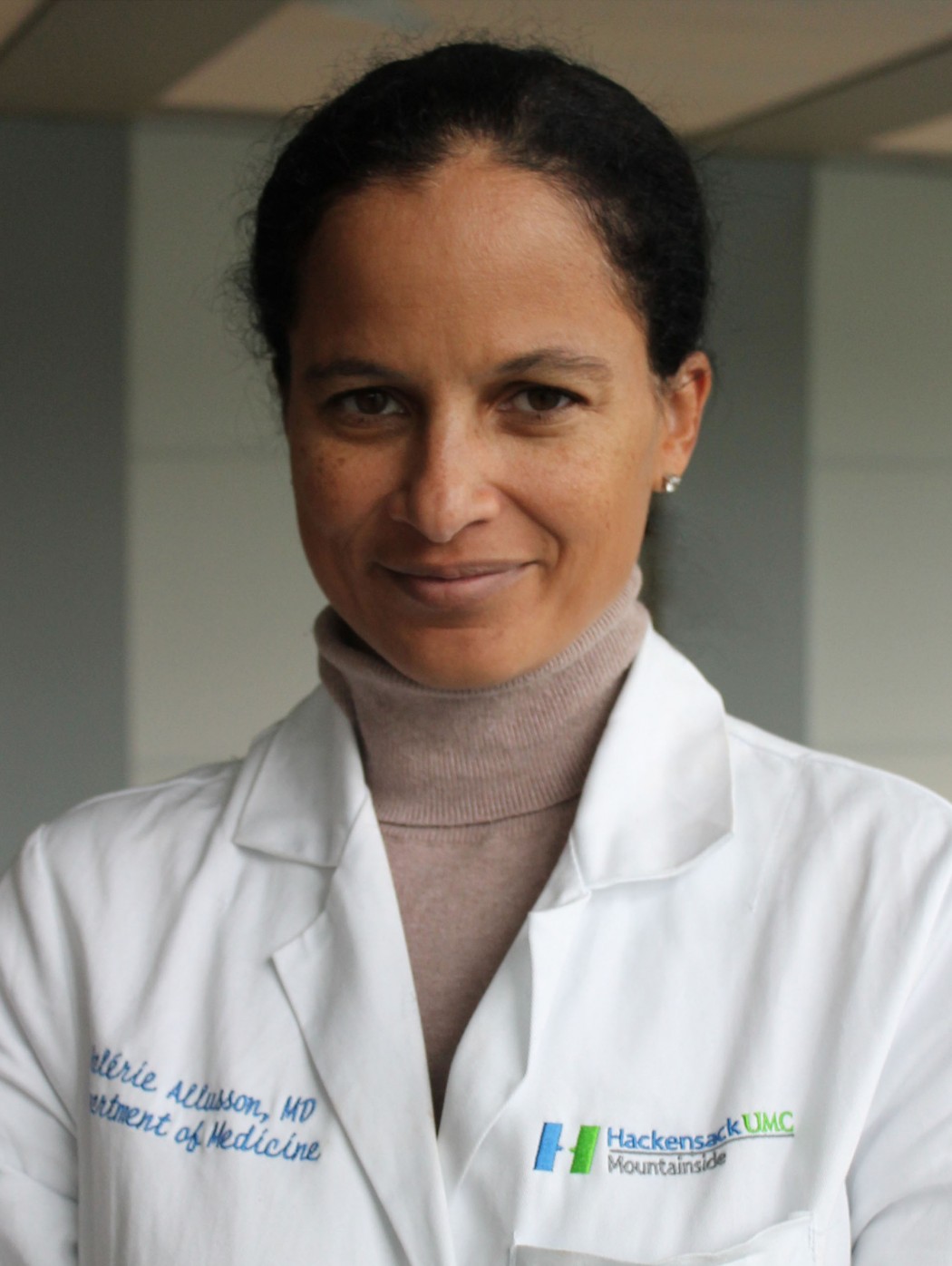News
-
March 08, 2018The human brain has the capacity to learn new information and improve memory at any age. This is known as Neuroplasticity. Based on clinical studies a diet that includes antioxidants such as fruits and vegetables can protect the brain from cell damage. Diet’s high in saturated fats like fatty and or processed foods can increase the risk of memory loss and dementia. Physical exercise can increase blood flow to the brain which will allow the increase of nutrients such as oxygen and glucose to the brain cell.Read More
-
February 26, 2018
Living a Heart Healthy Lifestyle to Prevent Heart Disease
For American Heart Month, we spoke to Dr. Ankitkumar Patel, interventional cardiologist and the director of the Cardiac catheterization laboratory at Mountainside Medical Center to discuss his thoughts on the importance of this month. “Cardiovascular diseases are the leading cause of death in men and women in the United States,” shares Dr. Patel. “Many of the problems (heart attacks, strokes and heart failure) can be prevented with lifestyle changes and increasing awareness.
Read More -
January 30, 2018
The Importance of Cervical Cancer Awareness and Prevention
For Cervical Cancer Awareness Month, we asked Mountainside Medical Group OB/GYN, Dr. Vanessa Parisi, why she thinks spreading awareness and prevention of cervical cancer is so important. “There has been a drastic decrease in the number of cervical cancer cases and cervical related deaths because of pap smears and HPV vaccines,” Dr. Parisi shares. “But there is still a lot of work that needs to be done in our country where we have so many resources available to us.”
Read More -
January 29, 2018
Moving with Heart
Did you know, according to the CDC, about 610,000 people die of heart disease each year? That’s 1 in 4 deaths due to an unhealthy heart. Many factors play a role in keeping your heart healthy. A major influence is physical activity. Being physically inactive increases your chances of getting heart disease or having a stroke by 50%. Just like all the other muscles in your body, your heart needs exercise in order to get and stay strong. A strong heart is more efficient when pumping blood through the body. Being active is one of the best and easiest things you can do for your heart.
Read More -
January 29, 2018
Cooking With Heart
Of course that side of fries sounds much more tempting than a side of fresh fruit, but let’s all try to make a healthy change in our diets and protect our future selves. A good diet is a major component in keeping your heart healthy. Excessive amounts of bad foods leads to high cholesterol and clogged arteries (atherosclerosis). When your arteries are clogged, it restricts blood flow to and from the heart causing a heart attack. Start caring for your heart the way it cares for you, and eat foods that will help you do so.
Read More -
January 12, 2018
BLOG: From the Bedside - Rounding Formula for Superior Patient Care
Patients like to know someone is watching over them and truly cares about them.As part of its patient focused commitment to medical excellence, Hackensack Meridian Health Mountainside Medical Center has implemented Highly Reliable Rounding (HRR), a multi-disciplinary approach to bedside rounding that delivers improved care coordination, patient-centered care and team building, and better patient outcomes. In patients that receive HHR, the procedures have resulted in patient satisfaction rates of greater than 90% in 2017.
Read More -
January 05, 2018
Mountainside Medical Center Cardiac Rehabilitation Program Certified by Industry Leader
Montclair, NJ – Hackensack Meridian Mountainside Medical Center is proud to announce the certification of its Cardiac Rehabilitation program by the American Association of Cardiovascular and Pulmonary Rehabilitation (AACVPR). Mountainside Medical Center was recognized for its commitment to improving the quality of life by enhancing standards of care.
Read More










